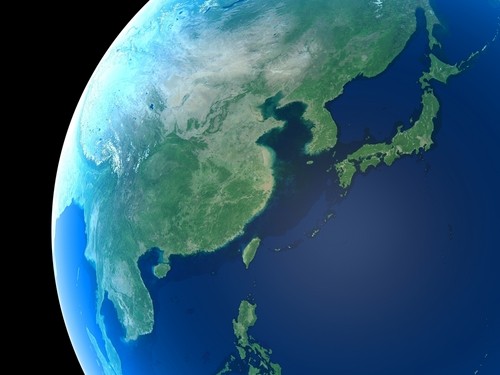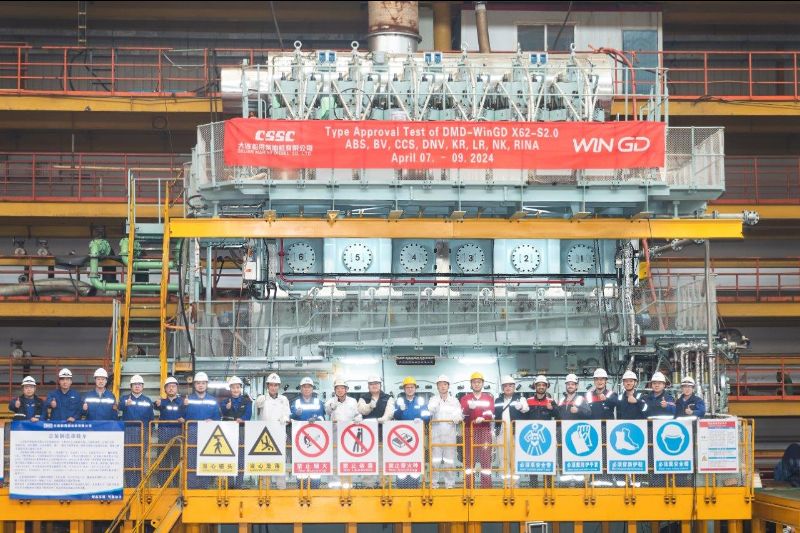(Bloomberg) — U.S. Secretary of State Hillary Clinton arrived in Beijing on a mission aimed partly at prevailing on China and Southeast Asian nations to use diplomacy instead of force to settle maritime disputes in a region rich in oil and gas.
Clinton is meeting tonight with Chinese Foreign Minister Yang Jiechi and tomorrow with leaders including President Hu Jintao and Vice President and heir apparent Xi Jinping. On the agenda are global security concerns, including the nuclear programs of Iran and North Korea, as well as the maritime disputes.
On a a six-nation, 11-day Asia-Pacific tour, Clinton is seeking to promote diplomacy in the territorial feuds without damaging U.S. relations with China. U.S. officials are concerned that tensions over rival claims in the East and South China Seas, involving China and nations from Japan to the Philippines, might constrain freedom of navigation or spark armed skirmishes.
The U.S. “has a national interest” in “the maintenance of peace and stability, respect for international law, freedom of navigation, unimpeded lawful commerce in the South China Sea,” Clinton told reporters after meeting with Indonesian Foreign Minister Marty Natalegawa last night in Jakarta.
Rival maritime claims among half a dozen Asian nations have fueled tension this year. China is establishing a military garrison on a disputed island, while the Philippines, Vietnam, Malaysia, Taiwan and Brunei are asserting their own claims. The region is estimated to have as much as 30 billion metric tons of oil and 16 trillion cubic meters of gas, according to China’s state-run Xinhua news agency.
Balancing Act
Asia analysts such as Ernie Bower of the Center for Strategic and International Studies in Washington said Clinton’s trip involves a delicate balancing act: reassuring nervous allies that the U.S. will stand firm against any Chinese incursions that infringe on freedom of navigation or commerce, while engaging China more than ever as a partner in promoting economic growth and defending against global threats.
While the U.S doesn’t take a position on the competing territorial claims, “we believe the nations of the region should work collaboratively together to resolve disputes without coercion, without intimidation, without threats — and certainly without the use of force,” Clinton said.
The Obama administration endorses a July 20 declaration of principles on the South China Sea by the Association of Southeast Asian Nations and urges its members and China to make meaningful progress together toward making final a comprehensive “code of conduct” to establish “clear procedures for peacefully addressing disagreements,” she said.
Clinton met Asean Secretary General Surin Pitsuwan and its 10 ambassadors today in Jakarta, saying the U.S. wants to strengthen the group’s ability to face regional challenges. China has criticized U.S. attempts to promote a resolution.
“We count you not as counterpart but as true friend,” Pitsuwan told Clinton today.
China’s Stance
Chinese Foreign Ministry spokesman Hong Lei said at a briefing in Beijing that “countries outside the region should respect the countries concerned and take a stance of non- intervention.”
China’s criticism of the U.S. underscores strains over maritime trade in the resource-rich area, as the Obama administration has increased its focus on the Asia-Pacific. The U.S. needs to prove it’s returning to Asia as a “peacemaker, instead of a troublemaker,” China’s official Xinhua News Agency said in a commentary yesterday.
Clinton also met Indonesian President Susilo Bambang Yudhoyono, with whom she had been expected to discuss counter- terrorism, education and the political opening in Myanmar and education, officials on both sides told reporters.
Regional Forum
Asean leaders at a regional forum in July failed to reach consensus on how to handle disputes with China after Cambodia rejected a compromise with the other nine members. At the time, the Chinese government warned nations to avoid mentioning the territorial spats during the meetings and rejected Clinton’s call for adopting a code of conduct to address them.
Natalegawa later managed to negotiate a set of principles among the states, and stressed last night that the declaration is “not meant to be at the expense of any other party” or to “put any other country on the spot or in the corner.”
He said he had a “frank” conversation last month with Chinese Foreign Minister Yang and that talks to finalize a code of conduct should now move forward.
‘Quite Clear’
“The track is quite clear what is ahead of us,” Natalegawa said. “Absent a code of conduct, absent a process, we can be certain of more incidents and more tensions for the region.”
Zhao Hong, a senior research fellow at the East Asian Institute in Singapore, said that in China “many ordinary people, including some officials, have the impression that the U.S. is increasingly taking sides” and should take care to maintain “a neutral position.”
Clinton said the U.S. goal is for all parties to refrain from taking any steps that would stoke tensions or cause a “miscalculation” that could result in a military conflict.
Clinton and Natalegawa also discussed Iran’s nuclear program, following a summit that Indonesian delegates attended in Tehran. The secretary of state said Indonesia shares with the U.S. a “common position that while Iran has a right to the use of peaceful, nuclear energy,” it must abide by its international obligations and not pursue a nuclear weapon.
The Obama administration has increased its commitment to Asia by preserving spending in the region in the face of budget cuts, and boosting military cooperation with Australia, Singapore and the Philippines. While that has been welcomed by U.S. allies, China’s state-run media has criticized the Obama administration’s “rebalancing” to Asia as an effort to contain the growing influence and strategic importance of Asia’s largest economy.
Clinton’s trip will end with the Asia Pacific Economic Cooperation summit in Vladivostok, Russia.
-By Indira A.R. Lakshmanan. Copyright 2012 Bloomberg.

 Join The Club
Join The Club










